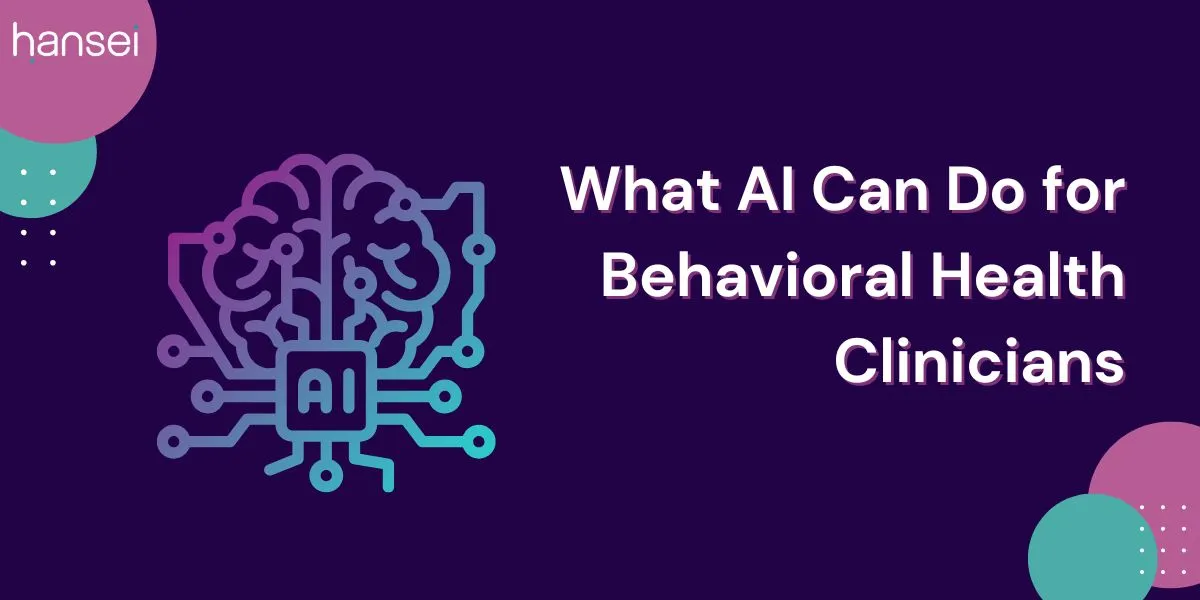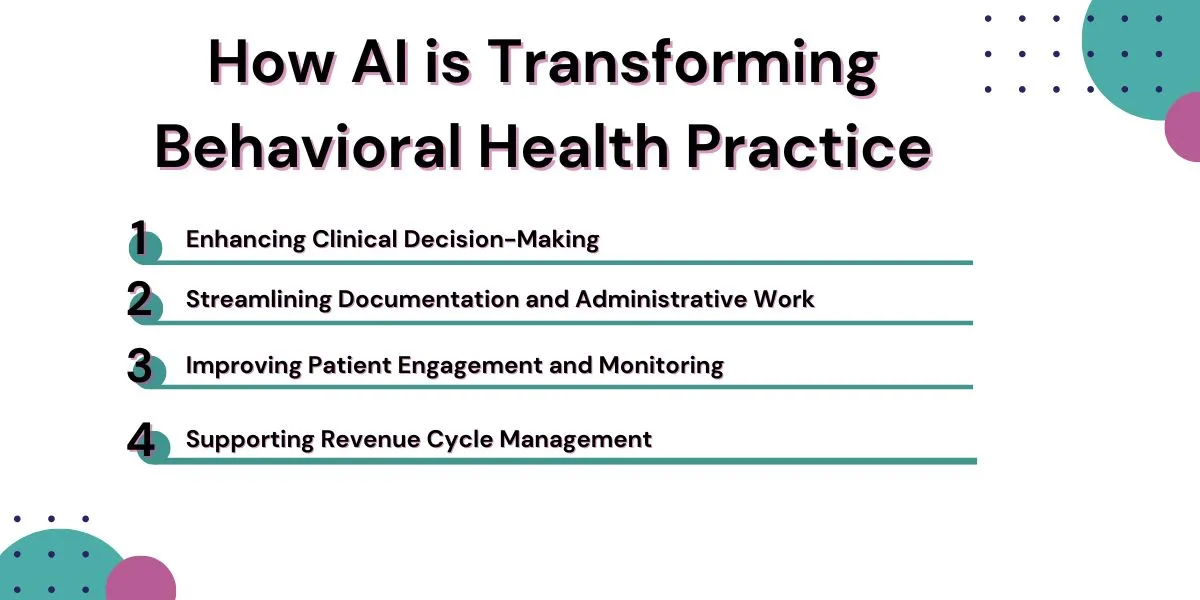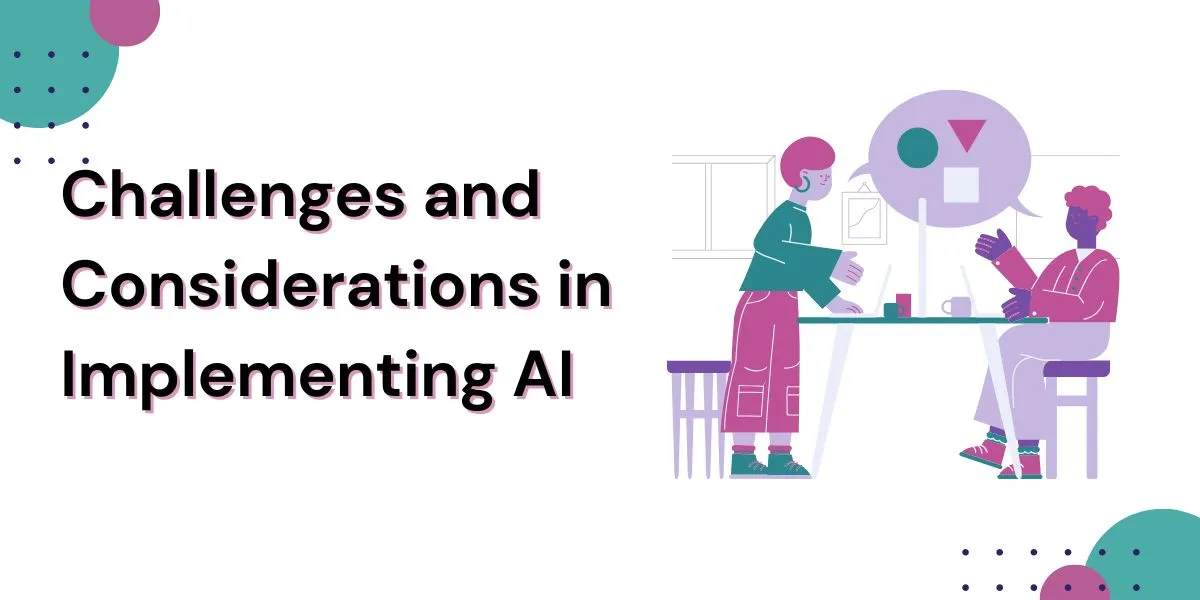Blog

Understanding what AI can do for behavioral health clinicians has quickly become essential as artificial intelligence transforms nearly every aspect of healthcare. In the realm of behavioral health, where patient needs are complex and documentation burdens are significant, AI offers remarkable opportunities to improve care, efficiency, and outcomes.
At Hansei Solutions, we’ve witnessed firsthand how technology can empower behavioral health providers. Whether you’re a solo practitioner or managing a large facility, exploring how AI fits into your clinical and administrative processes could be the key to staying competitive and delivering high-quality patient care.

How AI is Transforming Behavioral Health Practice
Artificial intelligence is quickly reshaping how behavioral health clinicians deliver care, manage workloads, and support patients. Once seen as futuristic, AI tools are now practical, everyday solutions that help streamline clinical decisions, reduce documentation burdens, and enhance patient engagement. Understanding how AI is transforming behavioral health practice empowers clinicians to work more efficiently while staying focused on compassionate, high-quality care.
Enhancing Clinical Decision-Making
One of the most significant impacts of AI in behavioral health lies in clinical decision support. AI-powered systems can analyze massive amounts of patient data—from clinical notes to lab results—to identify patterns that might indicate emerging risks, such as suicidal ideation or escalating depression symptoms.
For instance, natural language processing (NLP) tools can scan electronic health records (EHRs) and flag keywords or phrases suggesting worsening mental health, enabling earlier intervention. A 2022 study in Nature found that AI models could predict suicide attempts with an accuracy rate of nearly 80% when analyzing health records and patient histories.
While AI won’t replace human judgment, it provides behavioral health clinicians with an additional layer of insight, helping them make faster, data-driven decisions that support patient safety and improved outcomes.
Streamlining Documentation and Administrative Work
For many clinicians, the administrative burden of documentation is a significant source of stress and burnout. According to the American Medical Association, physicians spend nearly twice as much time on paperwork as they do with patients. This is particularly true in behavioral health, where detailed progress notes, treatment plans, and compliance documentation are critical.
AI-driven tools can help reduce this burden. Speech-to-text software powered by machine learning allows clinicians to dictate session notes directly into the EHR, saving time and reducing repetitive typing. Advanced AI systems can even generate structured clinical summaries, coding suggestions, and reminders for documentation compliance.
At Hansei Solutions, we’ve seen clients significantly improve productivity by integrating AI-driven transcription and documentation tools, freeing clinicians to focus more time on direct patient care.
Improving Patient Engagement and Monitoring
Another area where AI is making strides in behavioral health is patient engagement. AI-powered chatbots, for example, can offer patients 24/7 support between sessions, delivering mental health resources, cognitive-behavioral therapy (CBT) exercises, and crisis guidance. While these bots don’t replace therapy, they provide an additional touchpoint that helps patients feel connected and supported.
Furthermore, wearable devices and mobile apps integrated with AI algorithms can continuously track metrics like sleep, activity, and mood patterns. Insights gleaned from these tools allow clinicians to identify warning signs earlier, tailor treatment plans, and engage patients in shared decision-making.
A report by McKinsey estimates that AI applications could save the U.S. healthcare system up to $360 billion annually, largely by enhancing efficiency and proactive care. Behavioral health stands to benefit tremendously from this innovation, particularly in bridging gaps for patients who may not have consistent access to in-person services.
Supporting Revenue Cycle Management
While clinical care often takes the spotlight, AI also plays an increasingly important role in the financial health of behavioral health practices. Revenue cycle management is complex, involving claim submission, denial management, compliance auditing, and patient billing.
AI tools can automate claim scrubbing, identify coding errors before submission, and predict which claims are at high risk for denial. They can also analyze payer trends to help facilities negotiate better contracts or pinpoint issues that slow down cash flow.

Challenges and Considerations in Implementing AI
Despite its many benefits, adopting AI in behavioral health practice is not without challenges. Privacy concerns are paramount when dealing with sensitive mental health data. It’s crucial for behavioral health providers to ensure that any AI solutions comply with HIPAA regulations and maintain rigorous data security standards.
Additionally, there’s a learning curve involved. Clinicians and administrative staff must be trained not just on how to use AI tools but also on how to interpret their results appropriately. AI outputs should supplement, not replace, human clinical judgment.
Cost can also be a barrier, especially for smaller practices. While many AI tools offer impressive returns on investment, initial setup fees and subscription costs must be weighed against potential savings and operational improvements.
At Hansei Solutions, we emphasize a thoughtful, phased approach to implementing AI. We work with clients to assess readiness, select the right tools, and train teams to integrate AI into everyday workflows safely and effectively.
Frequently Asked Questions (FAQs) About AI for Clinicians
How can AI help behavioral health clinicians with documentation?
AI tools, such as speech-to-text software and smart documentation systems, help clinicians dictate notes directly into EHRs and generate structured summaries. This reduces time spent typing and improves compliance with documentation requirements.
Is AI safe to use for mental health patient data?
Yes—but only if implemented carefully. Behavioral health practices must ensure any AI tools comply with HIPAA and maintain high data security standards. It’s crucial to vet vendors thoroughly and maintain rigorous privacy protocols.
Can AI replace behavioral health clinicians?
No. AI is a tool to support clinicians, not replace them. It provides insights, automates repetitive tasks, and enhances care quality, but human judgment and therapeutic relationships remain irreplaceable in mental health care.
How can AI improve revenue cycle management?
AI helps identify billing errors, predict claim denials, analyze payer trends, and automate repetitive billing tasks. These efficiencies help practices protect revenue and accelerate cash flow.
Is AI expensive for small behavioral health practices?
Costs vary. While some advanced AI tools may be costly, many affordable solutions exist, including transcription services or patient engagement apps. Hansei Solutions helps providers evaluate ROI and choose scalable options that fit their budgets.
Embracing the Future of Behavioral Health
Understanding what AI can do for behavioral health clinicians isn’t just a matter of technological curiosity—it’s increasingly vital for the sustainability and quality of modern mental health care. As patient needs grow more complex and demands on providers continue to escalate, AI offers practical solutions to help clinicians deliver high-quality care without sacrificing their well-being.
At Hansei Solutions, we believe the future of behavioral health will be a partnership between human expertise and artificial intelligence. By leveraging AI’s power wisely, clinicians can enhance clinical insights, improve patient engagement, streamline billing, and ultimately ensure their practice remains competitive in an evolving healthcare landscape.
Contact us today to learn more.

Ready to focus on providing healthcare? Let us lighten your load.
We’re here to address your pain points and create growth opportunities for your organization. We’re passionate about what we do, and it shows in every interaction. Learn what makes us tick and schedule a demo today.